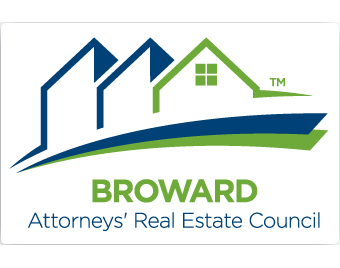FORT LAUDERDALE PROBATE ADMINISTRATION LAWYER
What is Probate?
Probate is the court-supervised process of settling a deceased person’s (the “decedent”) estate. The “estate” is defined as any asset that does not have a designated beneficiary. A “beneficiary” is an individual who will receive assets from the decedent’s estate. Probate involves validating the will (if there is one), paying the decedent’s debts, and distributing the remaining assets to their intended beneficiaries.
Who is involved in the Probate process?
- The Personal Representative: This is an individual, often a trusted family member or friend, who is appointed by the court to manage the estate. Usually, the personal representative is named in the will. In the absence of a will, Florida Statute §733.301(1)(b) outlines who can be appointed as a personal representative.
- Beneficiaries: These are the individuals who will receive assets from the decedent’s estate. Sometimes referred to as “heirs.”
- The Court: The probate court acts as a neutral party that oversees the process, ensuring that all legal requirements are met and that the decedent’s wishes are honored. The court is determined according to where the decedent resided.
- A Probate Attorney: These attorneys practice a very specific field of law and are responsible for making sure that the client’s personal representative understands the probate process from start to finish.
How does Probate work?
The probate process begins when the personal representative (or executor) files the decedent’s will with the court.
- Filing the Will: If a will exists, it must be filed with the court, as per Florida Statute §732.901. Additionally, the original death certificate must be filed with the will. If no will exists, the estate will be distributed according to Florida’s intestacy laws, as per Florida Statutes §732.101-732.111.
- Appointing the Personal Representative: The court will formally appoint the named personal representative who will assume the responsibility of managing the decedent’s estate. The powers of the personal representative are outlined in Florida Statute §733.612.
- Paying Debts & Taxes: Before assets are distributed to beneficiaries, the personal representative must settle any debts and taxes owed by the estate. The order these payments are made is outlined in Florida Statute §733.707.
- Distributing Assets: Once debts are settled, the remaining assets may be distributed to the beneficiaries in accordance with the terms of the will or Florida’s intestacy laws.
It is imperative that you have an experienced Probate Administration Attorney for this process so you can ensure that things are done correctly.
How long does Probate take?
The length of the probate process varies according to the facts of each situation. For straightforward estates, the process typically takes a minimum of three months and can extend up to six months.1 Therefore, the more complex an estate is, the longer the probate process will take.
How much does Probate cost?
Like the length of the probate process, the cost varies according to the facts of each situation. Probate can cost as little as a few thousand dollars to hundreds, depending on the complexity or size of the estate.
Are there different types of Probate Administration?
Yes, there are two types of probate administration under Florida law:
- Formal Probate Administration: the standard probate process, used when assets exceed $75,000 and the process has commenced within two years of the decedent’s death.
- Summary Probate Administration: a streamlined probate process for settling estates valued at $75,000 or less or when the decedent has been deceased for more than two years.
What if the decedent does not have a Will?
Under Florida law, an individual who dies without a valid will dies “intestate.” In the absence of a will, the decedent’s assets will be distributed according to Florida’s intestacy laws, per §732.101-732.111.
Typically, when a person dies intestate, the surviving spouse is the first in line to inherit the entire estate. However, if there is no surviving spouse or if the decedent had children outside the marriage, the distribution of assets can become complex. For this reason, it is recommended to consult with an experienced Probate Administration Attorney to ensure proper management of the estate.
Is Probate necessary?
Probate is necessary to pass ownership of the decedent’s probate assets to the decedent’s beneficiaries. A valid will is useless unless it is admitted to probate in the court. Only then can a will be effective to pass ownership of probate assets to the decedent’s beneficiaries. If the decedent had no will, probate is necessary to pass ownership of the decedent’s probate assets to those persons who are to receive them under Florida law.
Probate is also necessary to wind up the decedent’s financial affairs after his or her death. Administration of the decedent’s estate ensures that the decedent’s creditors are paid if certain procedures are correctly followed. It takes an experienced Probate Administration Attorney to make sure the process goes smoothly or is avoided altogether.
How can you avoid Probate?
A common misconception is that a will avoids probate. The purpose of a will is to direct how assets are distributed, but the probate court must validate the will and oversee the probate process to ensure the decedent’s wishes are effectuated.
Still, there are several things you can do to avoid the probate process with regard to matters beyond the will, such as:
- Creating a Living Trust: Assets such as real estate, savings accounts, investment accounts, and other valuable property can be transferred into a trust during the grantor’s lifetime. Upon their death, the assets in the trust are distributed to the named beneficiaries, bypassing probate.
- Designating Accounts as Payable on Death: Naming beneficiaries on your bank and investment accounts ensures that your assets will transfer directly to the beneficiary upon your death.
- Joint Ownership with Rights of Survivorship: Property held in joint tenancy with rights of survivorship automatically passes to the surviving joint owner(s) upon your death. This method is commonly used for real estate and financial accounts.
- Designating Beneficiaries on Life Insurance/Retirement Accounts: Naming the beneficiaries on life insurance policies, IRAs, and 401k’s bypasses probate and goes directly to the named beneficiaries.
- Obtaining a Lady Bird Deed: Also known as the “enhanced life estate”, this deed allows the property owner to retain full control of their property during their lifetime but upon death, the property transfers to the named remainderman.
When should you contact an Attorney?
There are many things that go into the process of probate administration and estate planning. In turn, you may find yourself feeling overwhelmed or unsure of the process, especially in cases where the decedent died intestate. For this reason, it is imperative to contact a Probate Administration Attorney to assist you in navigating the process.
If you need an experienced Fort Lauderdale Probate Administration Attorney, do not hesitate to contact The Law Offices of Odelia Goldberg at 954-832-0885 for more information. Virtual and telephone consultations are available. In some cases, home or hospital visits may be arranged.
An Experienced Probate Administration Lawyer is a Must
Probate is necessary to pass ownership of the decedent’s probate assets to the decedent’s beneficiaries. A valid will is useless unless it is admitted to probate in the court. Only then can a will be effective to pass ownership of probate assets to the decedent’s beneficiaries. If the decedent had no will, probate is necessary to pass ownership of the decedent’s probate assets to those persons who are to receive them under Florida law. It takes an experienced Probate Administration Attorney to make sure the process goes smoothly or is avoided altogether.
Probate is also necessary to wind up the decedent’s financial affairs after his or her death. Administration of the decedent’s estate ensures that the decedent’s creditors are paid if certain procedures are correctly followed.
There are two types of probate administration under Florida law:
- Formal Probate Administration
- Summary Probate Administration
Summary administration can only be used when the total value of decedent’s assets that are subject to probate are $75,000 or less or when the decedent has been deceased for more than two years. Formal administration is used whenever a personal representative is required for other purposes and for all other estates.
Why Call A Fort Lauderdale Probate Attorney?
A probate attorney practices a very specific field of law that is of particular interest to the elderly: he (or she) is responsible for making sure that the client’s personal representative understands the probate process from beginning to end.
Of course, the specifics of that process vary from state to state, but the general rule of thumb is that a probate attorney helps a clients’ personal representative execute the process of enforcing the last will and testament. Some of the many questions that the personal representative will be asked of the probate lawyer include, but are certainly not limited to, the following:
- Did the client leave a last will and testament – or, if the client is still living, does the client intend to write a last will and testament?
- Are you, as the personal representative, able to locate all of the client’s assets, both that are in probate, and not in probate?
- Are you, as the personal representative, able to take care of the various taxes that will be assessed to the client’s estate – such as the inheritance taxes, and the estate taxes?
- How would you, as the personal representative, distribute the remainder of the client’s estate once the taxes have been paid, the expenses have been deducted, and the various real estate is retitled into a beneficiary’s name?
If you need an experienced Fort Lauderdale Probate Administration Attorney, do not hesitate to contact The Law Offices of Odelia Goldberg at 954-832-0885 for more information. Virtual and telephone consultations are available. In some cases, home or hospital visits may be arranged.









